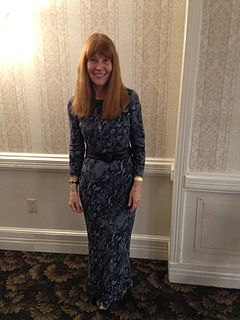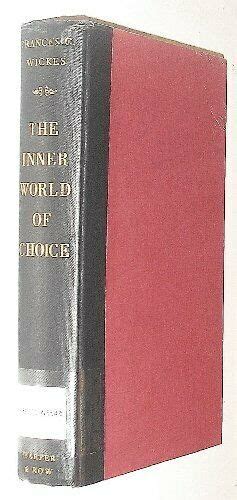A Quote by Leonard Mlodinow
Every aspect of our lives plays out in two versions: one conscious, which we are constantly aware of, and the other unconscious, which remains hidden from us.
Related Quotes
Our lives can be considered a sacred quest. It is a quest which may have begun in this lifetime or many lifetimes before. It is a quest to find ourselves: who and what we really are. To do this we must first cease to pretend to be what we are not. We must cast away our Persona or mask. We must be prepared to confront the Shadow, that which we are and rather were not. Only then can we unify our conscious and unconscious minds and so give birth to the hidden Sun - the Self.
I think we all carry within us different versions of ourselves. Our true, greatest, most honest versions of ourselves can either be developed and nourished, or it can remain dead from neglect. Most people opt for the easiest version rather than the best.
But in the end which version lives, which version thrives and which version dies, depends on the choices we make and the people in our lives.
A person is alive only to the degree that he or she is aware. To make the most of life we must constantly strive to be aware of the importance of being aware. Be aware of your senses and use them: So often we are distracted and unconscious of the riches our senses can pour into our lives. We eat food without tasting it, listen to music without hearing it, smell without experiencing the pungency of odors and the delicacy of perfumes, touch without feeling the grain or texture, and see without appreciating the beauty around us.
So the dream is continually reminding us of the part which our conscious is forgetting. It does not speak with any absolute authority; it simply gives a true picture of a situation which exists in the unconscious. It speaks truth; but not, as some persons believe, the truth. It shows the other side.
No organism can afford to be conscious of matters with which it could deal at unconscious levels. Broadly, we can afford to sink those sorts of knowledge which continue to be true regardless of changes in the environment, but we must maintain in an accessible place all those controls of behavior which must be modified for every instance. The economics of the system, in fact, pushes organisms toward sinking into the unconscious those generalities of relationship which remain permanently true and toward keeping within the conscious the pragmatic of particular instances.
[T]ruly to escape Hegel involves an exact appreciation of the price we have to pay to detach ourselves from him. It assumes that we are aware of the extent to which Hegel, insidiously perhaps, is close to us; it implies a knowledge, in that which permits us to think against Hegel, of that which remains Hegelian. We have to determine the extent to which our anti-Hegelianism is possibly one of his tricks directed against us, at the end of which he stands, motionless, waiting for us.
Man ordinarily is a robot. He lives apparently awake, but not really. He walks, he talks, he acts, but it is all as if in sleep - not conscious of what he is doing, not conscious of what he is saying, not conscious of all that surrounds him. He moves surrounded in a dark cloud of unawareness. According to Gautama the Buddha, this is the original sin: to live unconsciously, to act out of unconsciousness. In fact, the word 'sin' comes from a root which means forgetfulness. Sin simply means that we are not conscious, aware, alert, that we don't have any inner light to guide us.
Much of traditional magic takes place by the light of the Moon. In the night world we are closer to the unconscious, the hidden, that which has yet to be made manifest, that which is suppressed and as yet realized. Past, present, and future are simultaneously one in the realm of the unconscious. Night is when this world and the other world can meet.
Evolution is fundamentally creative, and when we align ourselves with the evolutionary movements of consciousness, the universe itself puts wind in our sails. Quantum thinking goes beyond the thoughts we're aware of; it includes unconscious processing, which doesn't just expand our boundaries, but can also free us from the suffering that conscious processing (sometimes known as 'the monkey mind') creates.
An entertainment is something which distracts us or diverts us from the routine of daily life. It makes us for the time being forget our cares and worries; it interrupts our conscious thoughts and habits, rests our nerves and minds, though it may incidentally exhaust our bodies. Art, on the other hand, though it may divert us from the normal routine of our existence, causes us in some way or other to become conscious of that existence.
We can each sit and wait to die, from the very day of our births. Those of us who do not do so, choose to ask - and to answer - the two questions that define every conscious creature: What do I want? and What will I do to get it? Which are, finally, only one question: What is my will? Caine teaches us that the answer is always found within our own experience; our lives provide the structure of the question, and a properly phrased question contains its own answer.




































